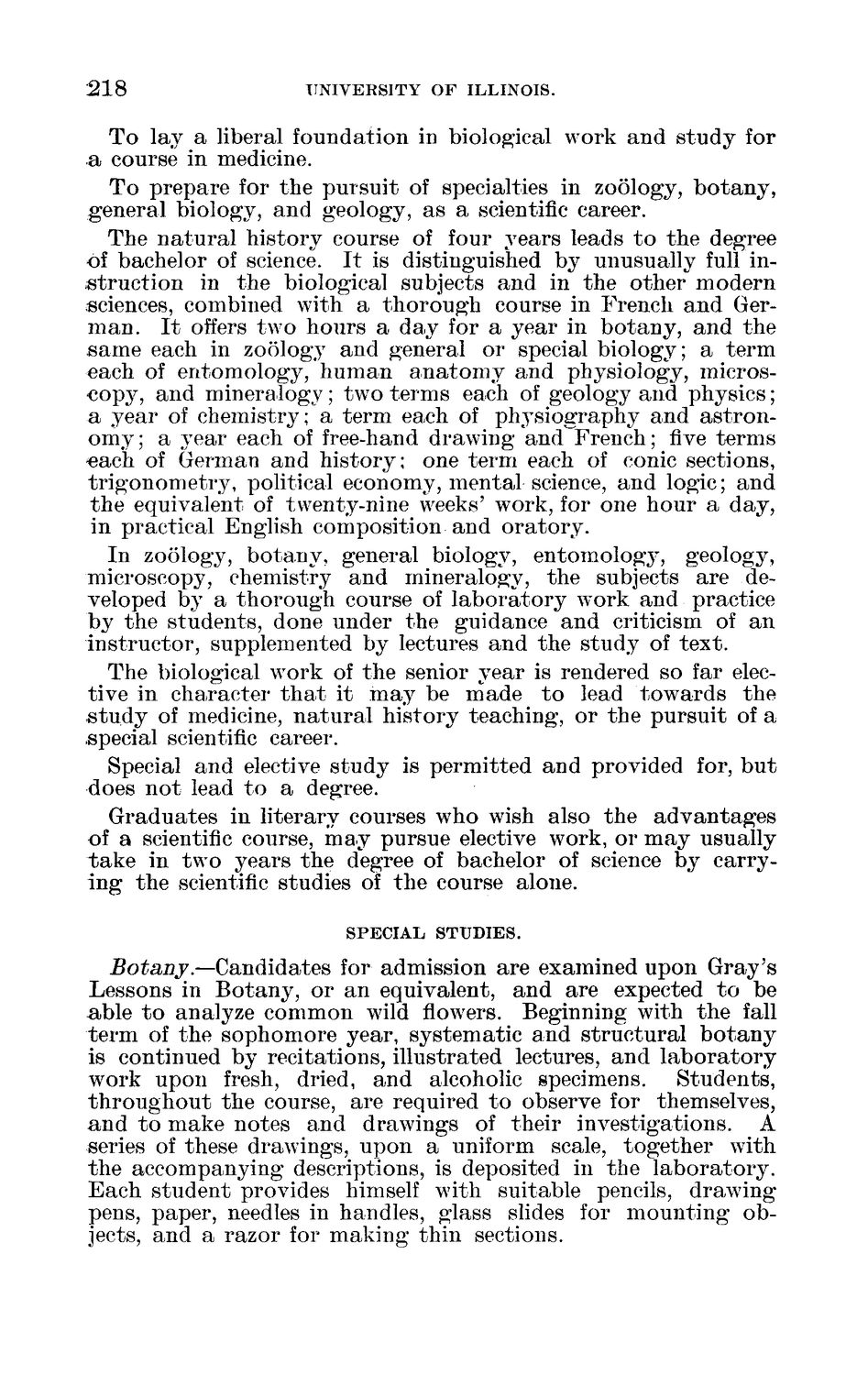| |
| |
Caption: Board of Trustees Minutes - 1890
This is a reduced-resolution page image for fast online browsing.

EXTRACTED TEXT FROM PAGE:
218 UNIVERSITY OF ILLINOIS. T o lay a liberal foundation in biological work and s t u d y for a course in medicine. T o prepare for the pursuit of specialties in zoology, b o t a n y , general biology, and geology, as a scientific career. The n a t u r a l history course of four years leads t o t h e degree of bachelor of science. I t is distinguished by unusually full ins t r u c t i o n in t h e biological subjects a n d in the other modern sciences, combined with a t h o r o u g h course in French and Germ a n . I t offers t w o hours a d a y for a year in b o t a n y , a n d t h e s a m e each in zoology and general or special biology; a t e r m each of entomology, h u m a n a n a t o m y and physiology, micros€op3^, and mineralogy; two terms each of geology and physics; a year of chemistry; a t e r m each of physiography and a s t r o n o m y ; a year each of free-hand drawing and French; five terms «ach of German and h i s t o r y ; one t e r m each of conic sections, trigonometry, political economy, mental science, and logic; and t h e equivalent of twenty-nine weeks' work, for one h o u r a day, in practical English composition and o r a t o r y . In zoology, b o t a n y , general biology, entomology, geology, microscopy, chemistry and mineralogy, the subjects are developed by a t h o r o u g h course of l a b o r a t o r y work and practice by the students, done under the guidance and criticism of a n instructor, supplemented by lectures and the study of text. The biological w7ork of the senior year is rendered so far elective in character t h a t it m a y be made t o lead t o w a r d s the s t u d y of medicine, n a t u r a l history teaching, or t h e pursuit of a special scientific career. Special and elective study is permitted and provided for, b u t does n o t lead t o a degree. Graduates in literary courses who wish also t h e a d v a n t a g e s of a scientific course, m a y pursue elective work, or m a y usually t a k e in two years t h e degree of bachelor of science by carryi n g t h e scientific studies of t h e course alone. SPECIAL STUDIES. Botany.—Candidates for admission are examined upon Gray's Lessons in B o t a n y , or an equivalent, a n d are expected t o be able t o analyze common wild flowers. Beginning with t h e fall t e r m of t h e sophomore year, systematic and s t r u c t u r a l b o t a n y is continued by recitations, illustrated lectures, and l a b o r a t o r y work upon fresh, dried, a n d alcoholic specimens. Students, t h r o u g h o u t the course, are required t o observe for themselves, a n d t o m a k e notes and drawings of their investigations. A series of these drawings, upon a uniform scale, together with t h e accompanying descriptions, is deposited in the l a b o r a t o r y . E a c h student provides himself with suitable pencils, drawing pens, paper, needles in handles, glass slides for m o u n t i n g objects, and a razor for m a k i n g thin sections.
| |